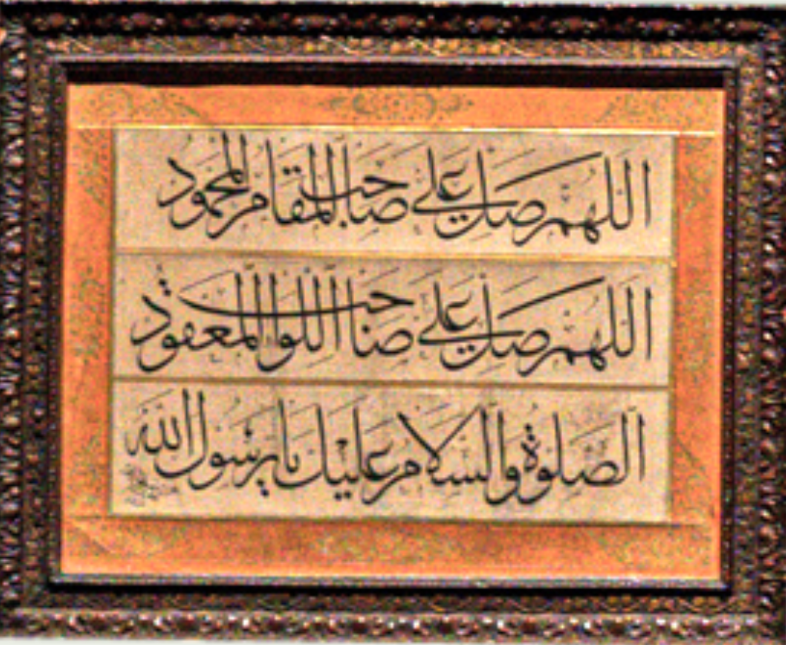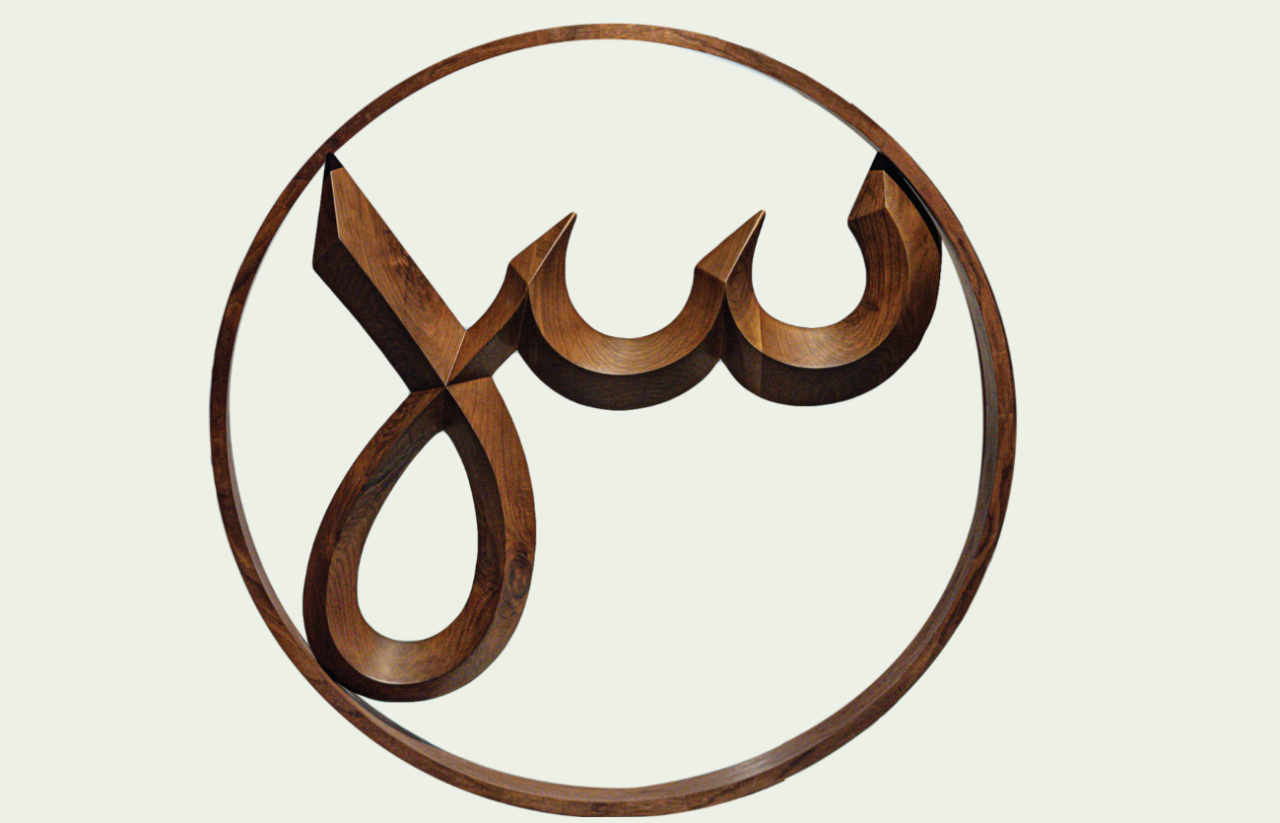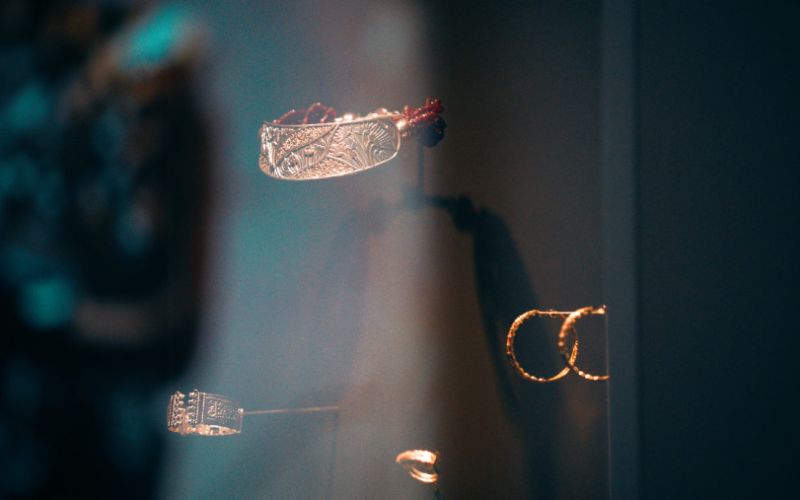“Scripts and Calligraphy: Paths of the Soul”: The second “Scripts and Calligraphy: Paths of the Soul” exhibition. Organized by the Ministry of Culture, is currently being held at Irqah Hospital in Riyadh until September 2. The event will show the spiritual dimensions of calligraphy through a collection of historical and contemporary works. Bayan Barboud, a Saudi calligrapher and visual artist, and Azza Fahmy, an Egyptian jewelry designer, are among the featured artists.
“Scripts and Calligraphy: Paths of the Soul” Design and Themes

Furthermore, the exhibition was designed by acclaimed architects and scenographers, Jean-Paul Boulanger, Margo Renisio, and Tang Tu. It involves 34 calligraphers from 11 countries and 19 artists from 12 countries. Who are participating under four themes: light, letters, space, and poetry. Visitors have the opportunity to explore the history of Arabic calligraphy. And how it has evolved over time. Highlighting its colors` and functional dimensions as an art form and a symbol of identity and heritage.

“Scripts and Calligraphy: Paths of the Soul” Inspiration Behind the Designs
Azza Fahmy’s jewelry designs are inspired by important books, civilizations, persons, or writers, and incorporate quotes from them. Speaking on the inspiration behind her designs. Fahmy said: “We always do culture-specific collections inspired by either important books, or civilizations. Also, persons or writers. We take quotes from them, and we design them in our jewelry.” The jewelry is a display of the fusion between traditional and contemporary art, highlighting the beauty of Arabic calligraphy.
“Scripts and Calligraphy: Paths of the Soul” Lara Assouad’s Calligraphic Letters
In addition, Lara Assouad, a Lebanese type, and graphic designer. Also is also taking part in the exhibition with a collection of calligraphic letters. Assouad’s work is inspired by the spiritual dimension of calligraphy. She noted that the letters represent values, the name of someone we love, or words we want to remember. “Calligraphy is a way of showing our deepest emotions and feelings,” she said
The “Scripts and Calligraphy: Paths of the Soul” show provides visitors with a unique opportunity. To explore the spiritual dimensions of calligraphy. The exhibition highlights the beauty of Arabic calligraphy and its significance as an art form. And a symbol of identity and heritage.
The works shown are a testament to the fusion of traditional and contemporary art. And the exhibition is a must visit for anyone with an interest in Arabic calligraphy.
Calligraphy: The Art of Beautiful Writing
Calligraphy is the art of creating beautiful handwriting. It is a visual art form that combines writing and drawing, and has been practiced for centuries in many cultures around the world. Calligraphy is often used for formal documents, such as wedding invitations, certificates, and religious texts, but it can also be used for artistic expression.
The History of Calligraphy
Calligraphy has a rich history that dates back to ancient times. The earliest known examples of calligraphy come from China, where it was used for official documents and for copying religious texts. Calligraphy also played a significant role in the development of the Arabic language, as the written form of the language evolved along with calligraphy.
In Europe, calligraphy was used during the Middle Ages for illuminated manuscripts, which were hand-written books decorated with illustrations and embellishments. Calligraphy was also used during the Renaissance for printing books, as well as for creating works of art.
The Tools of Calligraphy
The tools used for calligraphy vary depending on the style and tradition. In general, calligraphers use a pen or brush and ink to create their work. A traditional calligraphy pen is made of bamboo or reed, and has a flexible tip that can be used to create thin or thick lines depending on the pressure applied.
In addition to pens and brushes, calligraphers also use other tools such as rulers, compasses, and stencils to create their work. These tools help to ensure that the letters and lines are precise and consistent.
Styles of Calligraphy
There are many different styles of calligraphy, each with its own unique characteristics. Some of the most well-known styles include:
- Copperplate: A pointed pen style that is characterized by its flowing, elegant lines.
- Gothic: A bold, angular style that was popular during the Middle Ages.
- Italic: A contemporary style that is known for its slanted, cursive letters.
- Chinese: A style of calligraphy that uses a brush and ink to create characters that are both beautiful and meaningful.
The Benefits of Calligraphy
Calligraphy is not just a beautiful art form, it also has many practical benefits. Practicing calligraphy can help to improve handwriting skills, as well as develop patience and concentration. It can also be a form of relaxation and stress relief, as the repetitive motions of creating letters can be calming and meditative.
In addition, calligraphy can be used as a form of self-expression. By choosing different styles, colors, and materials, calligraphers can create works of art that reflect their own unique personality and style.
Getting Started with Calligraphy
If you are interested in learning calligraphy, there are many resources available to help you get started. There are online tutorials and classes, as well as books and videos that can teach you the basics of calligraphy and help you develop your skills.
To get started, you will need some basic tools, such as a pen or brush, ink, and paper. You can also experiment with different styles and materials to find what works best for you.
Calligraphy is a beautiful and timeless art form that has been practiced for centuries. Whether you are interested in creating formal documents or expressing yourself through art, calligraphy is a rewarding and fulfilling hobby to explore. With practice and dedication, anyone can learn the skills and techniques of calligraphy and create beautiful works of art.








